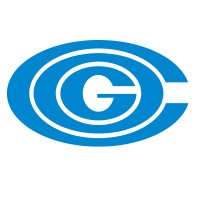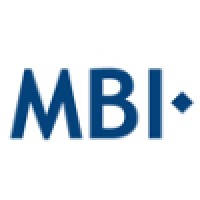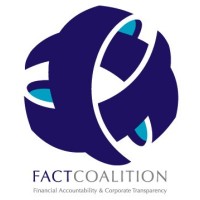Company Details
mwcog
241
5,102
921
mwcog.org
0
MET_8658773
In-progress

Metropolitan Washington Council of Governments Company CyberSecurity Posture
mwcog.orgFrom its inner core to outer suburbs, more than five million people call the metropolitan Washington region home. And an additional million new residents are forecast between now and 2045. Managing this growth—and ensuring a well-maintained transportation system, clean air, water, and land, safe and healthy communities, and a vibrant economy—requires regional partnership. The Metropolitan Washington Council of Governments (COG) is the hub for this partnership. Every month, more than a thousand officials and experts come to COG to make connections, share information, and develop solutions to the region’s major challenges. Together, they help advance COG's Region Forward Vision for a more prosperous, accessible, livable, and sustainable future. Founded in 1957, COG is an independent, nonprofit association, with a membership of 300 elected officials from 24 local governments, the Maryland and Virginia state legislatures, and U.S. Congress. COG is supported by financial contributions from its member governments, federal and state grants and contracts, and donations from foundations and the private sector. The Board of Directors is COG’s governing body and is responsible for its overall policies. In addition, a wide network of policy, technical, and advisory committees, partnerships, and programs advance COG’s regional work. Elected leaders, police chiefs, housing directors, environmental experts, transportation planners, and more find value in working together at COG. A staff of more than 130 subject matter experts and other professionals support COG and its members.
Company Details
mwcog
241
5,102
921
mwcog.org
0
MET_8658773
In-progress
Between 700 and 749

 MWCG Global Score (TPRM)
MWCG Global Score (TPRM)XXXX



No incidents recorded for Metropolitan Washington Council of Governments in 2025.
No incidents recorded for Metropolitan Washington Council of Governments in 2025.
No incidents recorded for Metropolitan Washington Council of Governments in 2025.
MWCG cyber incidents detection timeline including parent company and subsidiaries

From its inner core to outer suburbs, more than five million people call the metropolitan Washington region home. And an additional million new residents are forecast between now and 2045. Managing this growth—and ensuring a well-maintained transportation system, clean air, water, and land, safe and healthy communities, and a vibrant economy—requires regional partnership. The Metropolitan Washington Council of Governments (COG) is the hub for this partnership. Every month, more than a thousand officials and experts come to COG to make connections, share information, and develop solutions to the region’s major challenges. Together, they help advance COG's Region Forward Vision for a more prosperous, accessible, livable, and sustainable future. Founded in 1957, COG is an independent, nonprofit association, with a membership of 300 elected officials from 24 local governments, the Maryland and Virginia state legislatures, and U.S. Congress. COG is supported by financial contributions from its member governments, federal and state grants and contracts, and donations from foundations and the private sector. The Board of Directors is COG’s governing body and is responsible for its overall policies. In addition, a wide network of policy, technical, and advisory committees, partnerships, and programs advance COG’s regional work. Elected leaders, police chiefs, housing directors, environmental experts, transportation planners, and more find value in working together at COG. A staff of more than 130 subject matter experts and other professionals support COG and its members.


The Center for New Democratic Processes is a nonpartisan civic engagement and public policy organization founded in 1974. Our mission is to strengthen democracy for all by partnering with individuals, communities, and institutions to design and implement informed, innovative, and democratic processe

The Chicago Metropolitan Agency for Planning (CMAP) is our region’s comprehensive planning organization. The agency and its partners developed and are implementing ON TO 2050, a new comprehensive regional plan to help the seven counties and 284 communities of northeastern Illinois implement strategi

MBI, one of New Jersey’s largest public affairs firm, offers its clients more than 300 years of combined experience in state and local government relations and public relations. MBI is located on West State Street, just steps away from the State House, in a beautifully renovated century old buildin

The Ministry of Energy and Natural Resources (MENR) was established upon Presidential Approval No. 4-400 dated 25.12.1963. According to Law No. 3154, the purpose of the Ministry of Energy and Natural Resources is to help define targets and policies related to energy and natural resources in a way
EdBuild was created to rethink schools and rebuild communities. We believe that we must radically transform the manner in which education is being delivered to our underserved communities. If cities and states can allocate resources more effectively, then they can break down boundaries, dramatically

The Financial Accountability & Corporate Transparency (FACT) Coalition is a nonpartisan alliance of over 100 state, national, and global groups working toward a fair tax system that addresses the challenges of a global economy and promoting policies to combat the harmful impact of corrupt financial
.png)
Washington policing: Under pressure from a federal judge, the Justice Department clarified that Washington's police chief will, for now,...
The latest COG report shows fewer people are experiencing homelessness in DC, Maryland and Virginia.
Prince George's was until recently the nation's wealthiest majority-Black county. That standing has been fueled by workers who gravitated to...
Louisville Metro Council member Kevin Kramer appeared in Washington D.C. Tuesday to testify to a congressional committee on local...
The Council met February 20, 2025, in Washington, D.C., for its 30th Plenary Meeting. All 10 members of COG participated in the meeting,...
The grants of roughly $200000 each will go to organizations that are working to address the nation's shortage of skilled cybersecurity...
The rapid expansion of renewable energy infrastructure is increasing the risk of cyberattacks on energy systems, prompting concerns among...
The growth of renewable energy systems spurred by government incentives, especially unregulated power, has led the FBI to issue a warning...
The Federal Bureau of Investigation (FBI) published Monday a Private Industry Notification (PIN) emphasizing how malicious cyber actors may seek to disrupt...

Explore insights on cybersecurity incidents, risk posture, and Rankiteo's assessments.
The official website of Metropolitan Washington Council of Governments is http://www.mwcog.org.
According to Rankiteo, Metropolitan Washington Council of Governments’s AI-generated cybersecurity score is 746, reflecting their Moderate security posture.
According to Rankiteo, Metropolitan Washington Council of Governments currently holds 0 security badges, indicating that no recognized compliance certifications are currently verified for the organization.
According to Rankiteo, Metropolitan Washington Council of Governments is not certified under SOC 2 Type 1.
According to Rankiteo, Metropolitan Washington Council of Governments does not hold a SOC 2 Type 2 certification.
According to Rankiteo, Metropolitan Washington Council of Governments is not listed as GDPR compliant.
According to Rankiteo, Metropolitan Washington Council of Governments does not currently maintain PCI DSS compliance.
According to Rankiteo, Metropolitan Washington Council of Governments is not compliant with HIPAA regulations.
According to Rankiteo,Metropolitan Washington Council of Governments is not certified under ISO 27001, indicating the absence of a formally recognized information security management framework.
Metropolitan Washington Council of Governments operates primarily in the Public Policy Offices industry.
Metropolitan Washington Council of Governments employs approximately 241 people worldwide.
Metropolitan Washington Council of Governments presently has no subsidiaries across any sectors.
Metropolitan Washington Council of Governments’s official LinkedIn profile has approximately 5,102 followers.
Metropolitan Washington Council of Governments is classified under the NAICS code 921, which corresponds to Executive, Legislative, and Other General Government Support.
No, Metropolitan Washington Council of Governments does not have a profile on Crunchbase.
Yes, Metropolitan Washington Council of Governments maintains an official LinkedIn profile, which is actively utilized for branding and talent engagement, which can be accessed here: https://www.linkedin.com/company/mwcog.
As of November 27, 2025, Rankiteo reports that Metropolitan Washington Council of Governments has not experienced any cybersecurity incidents.
Metropolitan Washington Council of Governments has an estimated 1,025 peer or competitor companies worldwide.
Total Incidents: According to Rankiteo, Metropolitan Washington Council of Governments has faced 0 incidents in the past.
Incident Types: The types of cybersecurity incidents that have occurred include .
.png)
Angular is a development platform for building mobile and desktop web applications using TypeScript/JavaScript and other languages. Prior to versions 19.2.16, 20.3.14, and 21.0.1, there is a XSRF token leakage via protocol-relative URLs in angular HTTP clients. The vulnerability is a Credential Leak by App Logic that leads to the unauthorized disclosure of the Cross-Site Request Forgery (XSRF) token to an attacker-controlled domain. Angular's HttpClient has a built-in XSRF protection mechanism that works by checking if a request URL starts with a protocol (http:// or https://) to determine if it is cross-origin. If the URL starts with protocol-relative URL (//), it is incorrectly treated as a same-origin request, and the XSRF token is automatically added to the X-XSRF-TOKEN header. This issue has been patched in versions 19.2.16, 20.3.14, and 21.0.1. A workaround for this issue involves avoiding using protocol-relative URLs (URLs starting with //) in HttpClient requests. All backend communication URLs should be hardcoded as relative paths (starting with a single /) or fully qualified, trusted absolute URLs.
Forge (also called `node-forge`) is a native implementation of Transport Layer Security in JavaScript. An Uncontrolled Recursion vulnerability in node-forge versions 1.3.1 and below enables remote, unauthenticated attackers to craft deep ASN.1 structures that trigger unbounded recursive parsing. This leads to a Denial-of-Service (DoS) via stack exhaustion when parsing untrusted DER inputs. This issue has been patched in version 1.3.2.
Forge (also called `node-forge`) is a native implementation of Transport Layer Security in JavaScript. An Integer Overflow vulnerability in node-forge versions 1.3.1 and below enables remote, unauthenticated attackers to craft ASN.1 structures containing OIDs with oversized arcs. These arcs may be decoded as smaller, trusted OIDs due to 32-bit bitwise truncation, enabling the bypass of downstream OID-based security decisions. This issue has been patched in version 1.3.2.
Suricata is a network IDS, IPS and NSM engine developed by the OISF (Open Information Security Foundation) and the Suricata community. Prior to versions 7.0.13 and 8.0.2, working with large buffers in Lua scripts can lead to a stack overflow. Users of Lua rules and output scripts may be affected when working with large buffers. This includes a rule passing a large buffer to a Lua script. This issue has been patched in versions 7.0.13 and 8.0.2. A workaround for this issue involves disabling Lua rules and output scripts, or making sure limits, such as stream.depth.reassembly and HTTP response body limits (response-body-limit), are set to less than half the stack size.
Suricata is a network IDS, IPS and NSM engine developed by the OISF (Open Information Security Foundation) and the Suricata community. In versions from 8.0.0 to before 8.0.2, a NULL dereference can occur when the entropy keyword is used in conjunction with base64_data. This issue has been patched in version 8.0.2. A workaround involves disabling rules that use entropy in conjunction with base64_data.

Get company history
















Every week, Rankiteo analyzes billions of signals to give organizations a sharper, faster view of emerging risks. With deeper, more actionable intelligence at their fingertips, security teams can outpace threat actors, respond instantly to Zero-Day attacks, and dramatically shrink their risk exposure window.
Identify exposed access points, detect misconfigured SSL certificates, and uncover vulnerabilities across the network infrastructure.
Gain visibility into the software components used within an organization to detect vulnerabilities, manage risk, and ensure supply chain security.
Monitor and manage all IT assets and their configurations to ensure accurate, real-time visibility across the company's technology environment.
Leverage real-time insights on active threats, malware campaigns, and emerging vulnerabilities to proactively defend against evolving cyberattacks.




